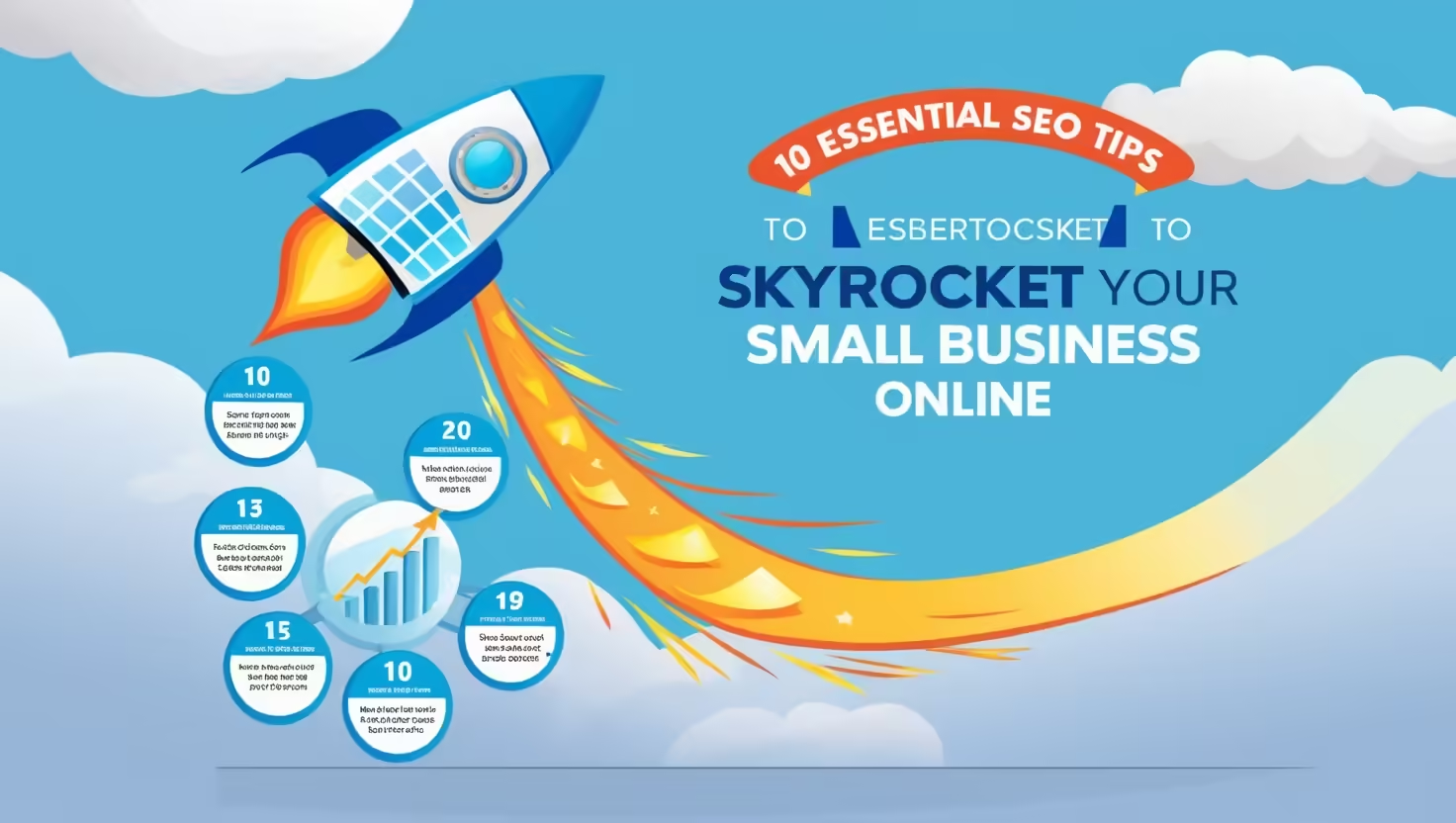
Did you know that 93% of online experiences begin with a search engine? That’s right, folks. Whether you’re selling artisanal cheeses or offering plumbing services, your potential customers are out there, frantically typing away in search bars. But here’s the million-dollar question: are they finding you?
Let’s dive into the world of SEO – it’s not as scary as it sounds, I promise. Think of it as the digital equivalent of putting up a massive, flashing neon sign for your business. Ready to light up the internet? Let’s go!
1. Optimize Your Website for Mobile
Picture this: Sarah, a potential customer, is cozied up on her couch, scrolling through her smartphone, looking for a local bakery. She stumbles upon your website, but – oh no! – it’s a jumbled mess on her screen. Bye-bye, Sarah (and her sweet tooth).
Don’t let this nightmare scenario become your reality. Make your website mobile-friendly, or watch your customers swipe left faster than on a dating app. Use Google’s Mobile-Friendly Test – it’s like a health check-up for your website, minus the uncomfortable paper gown.
2. Leverage Social Media for SEO
“But wait,” I hear you cry, “I thought we were talking about SEO, not social media!” Plot twist: they’re more interconnected than peanut butter and jelly.
Share your content on social platforms like it’s the hottest gossip in town. The more your stuff gets shared, the more likely it is to catch the eye of content creators and potential customers. It’s like throwing a digital boomerang – what goes around, comes around in the form of valuable backlinks and traffic.
3. Secure Your Website with HTTPS
Let’s talk security. Would you walk into a store with broken locks and windows? Didn’t think so. Your website visitors feel the same way. HTTPS is like a digital bouncer, keeping the bad guys out and the good guys (your customers) feeling safe and cozy.
Bonus? Google loves secure websites. It’s like getting extra credit just for locking your front door. Many hosting providers offer free SSL certificates – that’s free brownie points in Google’s eyes. Who doesn’t love free stuff?
4. Implement Schema Markup
Okay, “schema markup” sounds about as exciting as watching paint dry. But bear with me. It’s like giving search engines a cheat sheet about your website. And who doesn’t love a good cheat sheet?
For small businesses, local business schema is the golden ticket. It’s like shouting your business hours, reviews, and contact details from the rooftops – but in a language search engines understand. Use Google’s Structured Data Markup Helper. It’s easier than assembling IKEA furniture, I promise.
5. Boost Your Website Speed
In the online world, patience isn’t just a virtue – it’s practically extinct. If your website takes longer to load than it does to microwave popcorn, you’re in trouble.
Optimize those images like you’re packing for a budget airline – compress everything! Use browser caching, it’s like a digital memory bank for your site. And consider a content delivery network (CDN) – think of it as a system of express lanes for your website data.
6. Create High-Quality, Keyword-Optimized Content
Content is king, they say. But let’s be real – nobody wants to read a king’s boring decrees. Your content needs to be the talk of the town, the cream of the crop, the… well, you get the idea.
Use keywords like salt in a recipe – enough to enhance the flavor, not so much that it’s inedible. Tools like Google Keyword Planner or Ubersuggest are your new best friends. They’re like metal detectors, but instead of buried treasure, they find golden keywords.
7. Build High-Quality Backlinks
Backlinks are like popularity votes in the digital high school that is the internet. But not all votes are created equal. A backlink from a reputable site is like getting a vote from the prom king or queen. A sketchy backlink? That’s more like a vote from the kid who always smells like tuna sandwiches.
Create content so good that people can’t help but link to it. Engage in local partnerships, submit to reputable directories, guest post on industry blogs. It’s like networking, but you can do it in your pajamas.
8. Utilize Local SEO Strategies
If you’re a small business, local SEO is your secret weapon. It’s like having a megaphone in a crowd of whispers. Claim your Google My Business listing – it’s free real estate on the internet!
Encourage reviews like your business depends on it (because, well, it kind of does). Use location-specific keywords – if you’re a pizza place in Chicago, make sure “Chicago” and “pizza” are cozying up to each other in your content more often than pepperoni and cheese.
9. Regularly Update Your Website Content
An outdated website is like a stale sandwich – nobody wants it. Keep your content fresh, crisp, and delicious. You don’t need to write a novel every day – even small updates can make a big difference.
Think of it like tending a garden. A little bit of work regularly keeps everything blooming. Neglect it, and suddenly you’re dealing with a jungle of outdated information and tumbleweeds rolling across your homepage.
10. Monitor and Analyze Your SEO Performance
Last but not least, keep an eye on those metrics! It’s like being a detective, but instead of solving crimes, you’re cracking the code of your website’s performance.
Use Google Analytics and Google Search Console. They’re like x-ray vision for your website, showing you what’s working and what’s not. Pay attention to organic search traffic, bounce rate, and conversion rate. It’s like reading tea leaves, but with actual, useful data.
And there you have it, folks! Ten essential SEO tips that’ll have your small business lighting up the internet like Times Square on New Year’s Eve. Remember, SEO isn’t a sprint, it’s a marathon. But with these tips in your arsenal, you’re already miles ahead of the competition. Now go forth and conquer the digital world!
